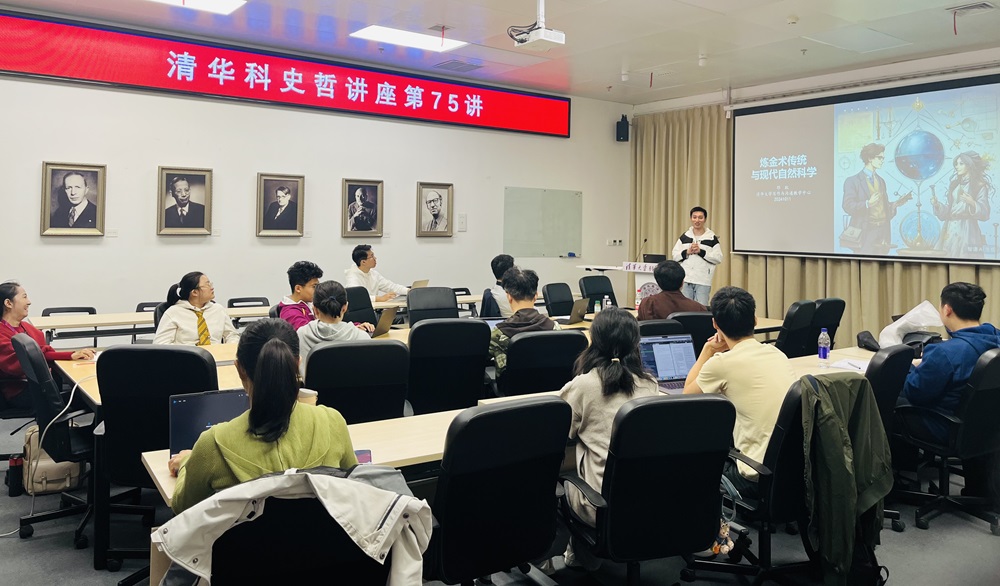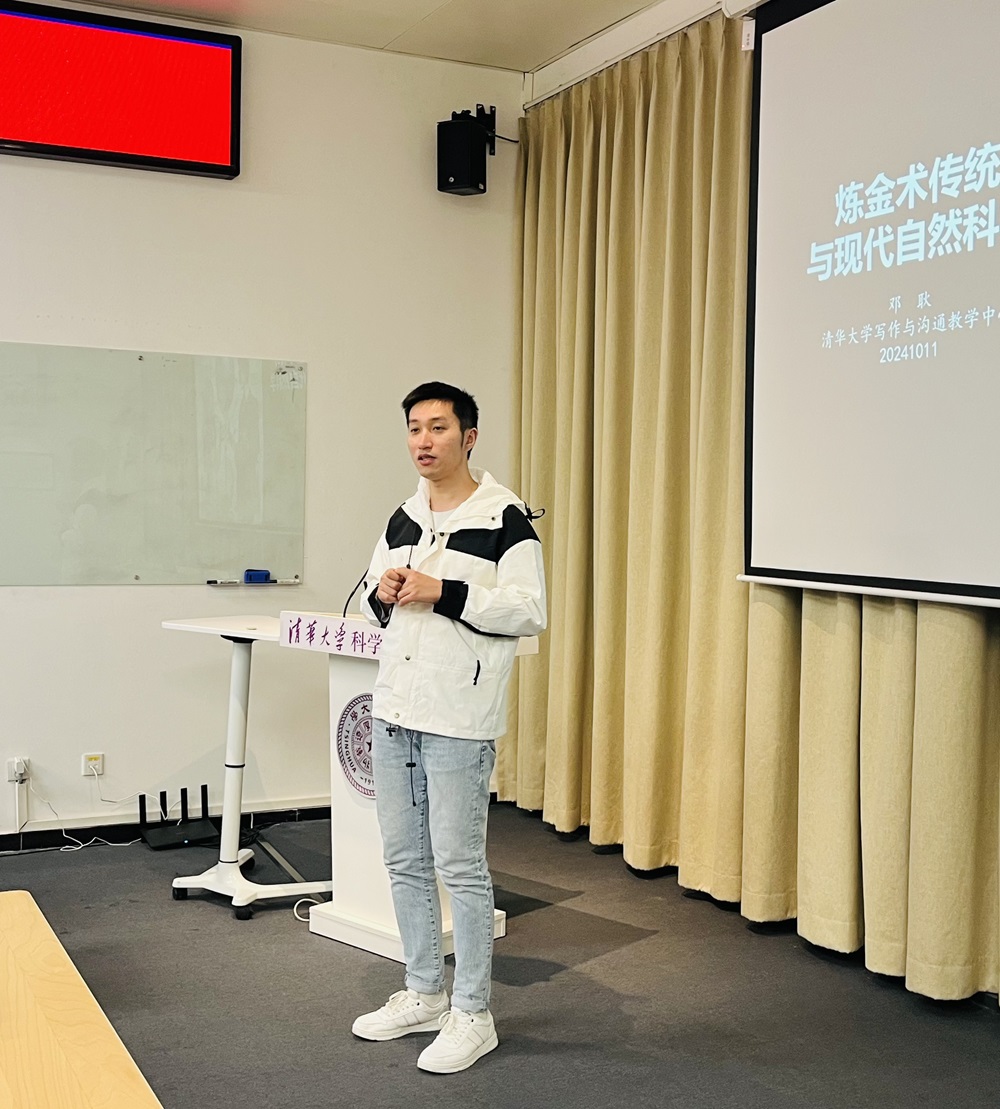On the afternoon of October 11, 2024, Tsinghua University’s Department of the History of Science hosted the 75th session of the THU History and Philosophy of Science Lecture Series in the Departmental Hall of the Humanities Building. Chaired by Associate Professor Shen Yubin, the lecture featured Deng Geng, Instructor from Tsinghua’s Writing and Communication Teaching Center, who presented a report titled "‘Two Kinds of Science’: An Inquiry into Alchemy and Modern Natural Science."

Deng began by citing British physicist Ernest Rutherford’s view: "Science can be divided into physics and stamp collecting." Rutherford identified as a physicist but ultimately received the 1908 Nobel Prize in Chemistry. Deng also referenced recent developments: pioneers in AI development were awarded the 2024 Nobel Prize in Physics, leading practitioners to confidently assert that AI research has moved beyond the "alchemical" stage and gained recognition from the discipline of physics. These examples, Deng noted, illustrate ongoing interactions between modern natural science and the alchemical tradition.

In the first section, "History: Alchemy and the Origins of Science," Deng introduced two ancient fields of knowledge: astrology and alchemy. He emphasized how these disciplines gradually developed clear distinctions: astrology concerned the superlunary world (above the moon), while alchemy focused on the sublunary world (below the moon), ultimately forming two distinct paradigms.
The second section, "Differentiation: The Divergence of Alchemy and the Scientific Revolution," examined early modern worldviews shaped by these traditions. For instance, the mechanical view of nature championed by Descartes—influenced by astronomy, astrology, clocks, and machinery—envisioned a deterministic universe. In contrast, the organic view represented by Paracelsus, rooted in alchemy and iatrochemistry, anticipated a mutable universe. After rapid development during the Scientific Revolution, atomism emerged as the dominant framework.
Titled "Undercurrents: Alchemy in Modernity and Modern Science," the third section revisited two classic problems in the philosophy of science—the "Duhem-Quine Problem" and the "Explanatory Gap"—through an alchemical lens. Deng argued: "Hypothesis testing applies to astrology; alchemy seeks precisely to break laws, so a perfect alchemy would not face this problem." He added that from a holistic alchemical perspective, "the interaction between observer and object may bridge the gap." Deng also cited narratives of modern science from chemistry’s viewpoint: before physicists confirmed atoms, chemists independently developed theories of elements and molecular structures. These theories were validated through macroscopic experiments without needing microscopic reduction. In fact, when quantum chemistry emerged, its first challenge was to reconcile its language with that of classical chemistry. Deng further highlighted enduring alchemical traditions in contemporary science: chemistry’s emphasis on challenging theories, traditions, and nature while valuing technique and contingency; condensed matter physics; and decades-long mathematical debates like the classification theorem for finite simple groups.
In the final section, "Revival: Alchemy’s Paradigm as a New Science," Deng envisioned a renewed alchemical framework: studying multi-body and complex interactions; adopting holistic, generative, and evolutionary methods; embracing contingency, chaos, and randomness to offer value judgments distinct from astrological traditions; and opposing unfounded, logically ambiguous relativism. After the report, Professor Shen Yubin, Jiang Che, and other faculty and students engaged in lively discussion with Deng.
Documented by: Luo Haotian
Reviewed by: Deng Geng

